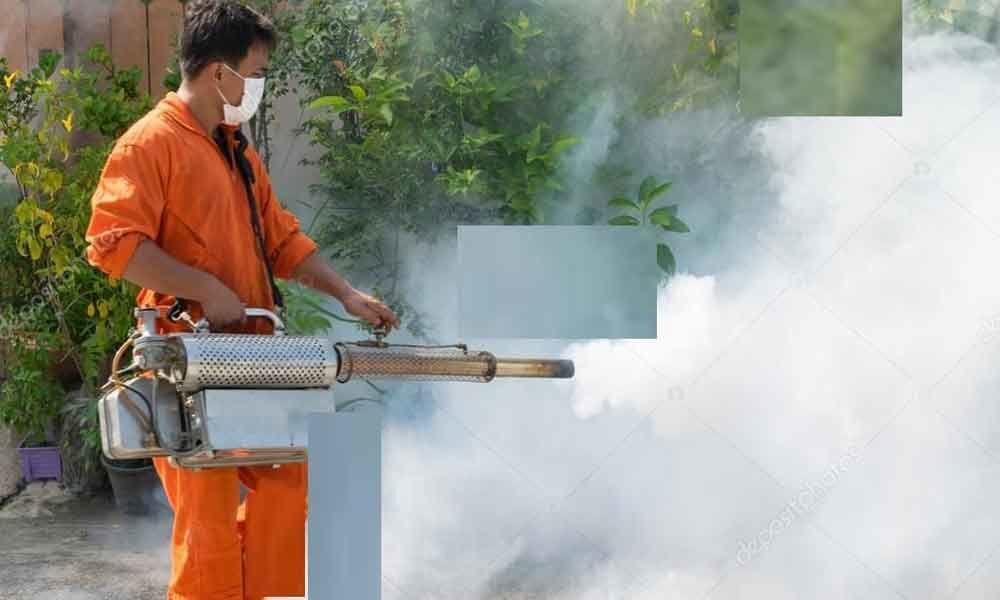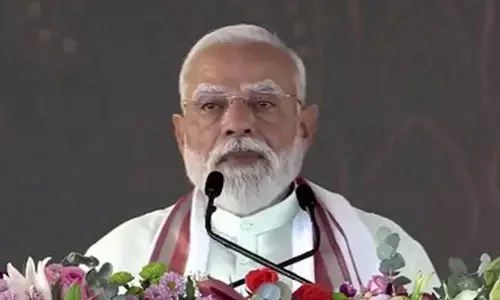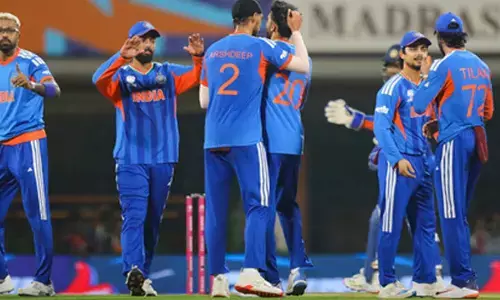How we can check Dengue, Chikungunya & Malaria

Reports are pouring in from across Telangana and Andhra Pradesh about people suffering from Dengue, Chikungunya and Malaria diseases which are associated with fever first and then body pains etc.
Reports are pouring in from across Telangana and Andhra Pradesh about people suffering from Dengue, Chikungunya and Malaria diseases which are associated with fever first and then body pains etc.
If we look at the history, when DDT was sprayed as indoor spray until 1970s in every household, mosquito borne diseases were rare. DDT, a cheap insecticide gives protection for 6-12 months if sprayed in a house, says a WHO report.
We remember DDT was sprayed by government regularly in households, even in remote tribal villages until 1970s. The date on which DDT sprayed inside the house was marked on the doors of houses. There were Malaria inspectors also at that time.
The trouble started when it was banned, based on the diverse health hazards reports described in the book of Rachael Carson on 'Silent Spring' of 1961 year. As America, which overused this DDT, banned it, India also followed the suit.
However, for indoor spraying South Africa switched from DDT to pyrethroids in 1997. Soon "Anopheles funestus" (Malaria-causing mosquito) appeared again. This led to re-introduction of DDT in 2000. Soon several other African countries re-introduced DDT. (WHO-report: Prevention and Control-The time has come to utilize the full potential for vector control in the large-scale reduction of vector-borne diseases).
As indoor spray of DDT is effective for 6-12 months. Although, we replaced DDT by permethrin or pyrethroides for fogging and spraying, it is not at all extensive, restricted to public places chiefly roads with a suggestion to keep the doors open. The efficacy of pyrethroids is very poor compared to DDT. Pyrethroids were never sprayed at dumps, garbage or indoor house even now. Thus, pyrethrods fogging and spraying is poor replacement of DDT. Hence this present health calamity.
It is strongly advocated to re-introduce DDT spray for as public health activity. It seems to be the only solution. Americans overused DDT. No doubt, it is non-biodegradable for years, residues in meat, vegetables, milk including in human milk was found when DDT was used as an agricultural pesticide. Limited use of DDT in public health in India is a matter to be considered urgently. Re-introduction of DDT is the only effective solution.
For control of mosquito borne diseases, personal protection against mosquito bites by applying mosquito repellent, ointments, lotions or even oils is another effective preventive method. It is cheaper and better to apply neem oil or mustard oil or any oil to the exposed parts of the body, once in four hours during the daytime and night before sleep.
Whether, one is in house or workplace, schools, offices or on outdoor work, apply one of these ointments or any oil. The mosquito never bites when oil is applied. Mosquito coils, mats and 'All-out' evaporators are effective but prevent the entry of mosquitoes in a small area.
Water insoluble oils prevent mosquitoes breeding and act as larvicide. Liberal pyrethroid spray at public places, parks, garbage is the most effective. Even before independence phenolic spray on waste water was a common sight in towns, but it is now discontinued.
In villages and town where people where people cannot afford costly methods for personal protection, the best method is to apply any edible oil on the body. Smoke and fumigate inside and outside the house with dried need leaf, or vavile (Vitex negundo, found in the wild in villages) mixed with cow dung. In fact, vast rice fields are the breeding grounds for mosquitoes in villages. The smoke of cow dung alone will also repell mosquitoes.
In a city like Hyderabad, fogging and spraying all drains with permethrin by drones or helicopter give good results. If we spray this way over the notorious Kukatpally, Asokh nagar, Bharkatpura and Khiratabad nallas etc, it can ensure good control of mosquitos. The prevention is better than cure. (Dr K Nagaiah is Chief Scientist, CSIR-IICT, Hyderabad, and Prof G Srimannarayana is Retd. Professor, Dept. of Chemistry, Osmania University, Hyderabad)
By Dr K Nagaiah & Prof G Srimannarayana










